The views expressed in our content reflect individual perspectives and do not represent the authoritative views of the Baha'i Faith.
Lift up your hearts above the present and look with eyes of faith into the future! – Abdu’l-Baha, Paris Talks, p. 67.
We’re surrounded by pessimistic cynicism.
Have you noticed?
I did, the other day, when I mentioned to someone I know and respect—an activist who works for social justice–that I had some hope for the world. The positive developments I cited–recent international agreements on climate change; the fact that many millions of Americans who didn’t have health care coverage now do; the successful drive for marital equality; the enormous outpouring of racial unity, forgiveness and goodwill post-Emanuel AME massacre; the rapidly-diminishing number of people killed in wars—didn’t strike my friend the same way they did me.
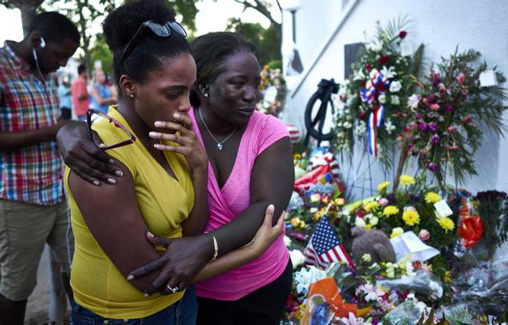
People mourning at AME Church in Charleston
Instead, he tried to tell me what was wrong with all those things. The agreements weren’t sufficient, the health insurance didn’t include everyone, bigotry, racial hatred and war still exists, he countered. On top of that, he said, our elected officials are corrupt; our entire system is driven by money; the whole world is going to hell in a handbasket. None of the constructive developments I mentioned measured up to his standards, I guess. He sounded bitter and angry and pessimistic and deeply cynical.
So many people seem wedded to that deeply cynical view of the world these days.
I can understand it—sometimes, the world does seem hapless and hopeless. But I know you’ve heard the old cliché: the perfect is the enemy of the good. In this case, my friend’s bitterness seemed to poison him against seeing anything optimistic or constructive or hopeful or good in the world. Nothing made him happy, or even mildly optimistic. Nothing met his expectations. If it wasn’t perfect, it wasn’t enough. I realized his bitterness and lack of hope had poisoned his entire attitude. And hey, nobody likes poison, right?
It always saddens me when I find this kind of poisonous pessimism in people who want social change. They’re not happy with the pace of change, or with its intensity. They want justice and peace and racial equality and a clean environment–now.
Me, too. I just don’t expect them to happen overnight, or to arrive completely perfect.
So I tried to figure it out. What’s the difference between my point of view and his? This isn’t a glass-half-full/glass-half-empty question. It doesn’t have to do with the speed or efficacy of change. It’s not really a political paradigm, either. Probably the major difference between the Baha’i viewpoint on these issues and the viewpoint of some social activists without a Faith has to do with our comparative outlooks on the future. Simply put, my friend has a dim view of what lies ahead; I don’t.
Many people, the cynical pessimists among us, have great doubt about humanity’s prospects, convinced that we’ll never get it together and deal with our problems. Essentially, they’ve lost faith in the future. Baha’is, on the other hand, strongly believe that a better future will arrive. The Baha’i teachings contain a glorious but realistic vision for the oneness and wholeness of the human race. They promise that after a period of struggle and strife, humanity has a bright destiny:
The whole earth is now in a state of pregnancy. The day is approaching when it will have yielded its noblest fruits, when from it will have sprung forth the loftiest trees, the most enchanting blossoms, the most heavenly blessings. – Baha’u’llah, quoted by Shoghi Effendi in The Promised Day is Come, p. 116.
…in this wondrous Dispensation the earth will become another earth and the world of humanity will be arrayed with perfect composure and adornment. Strife, contention, and bloodshed will give way to peace, sincerity and harmony. Among the nations, peoples, kindreds, and governments, love and amity will prevail and cooperation and close connection will be firmly established. Ultimately, war will be entirely banned… The five continents of the world will become as one, its diverse nations will become one nation, the earth will become one homeland, and the human race will become one people. Countries will be so intimately connected, and peoples and nations so commingled and united, that the human race will become as one family and one kindred. The light of heavenly love will shine and the gloomy darkness of hatred and enmity will be dispelled as far as possible. Universal peace will raise its pavilion in the midmost heart of creation and the blessed Tree of Life will so grow and flourish as to stretch its sheltering shade over the East and the West. – Abdu’l-Baha, Some Answered Questions, newly revised edition, p, 73.
Let us then trust in the bounty and bestowal of God. Let us be exhilarated with the divine breath, illumined and exalted by the heavenly glad-tidings. God has ever dealt with man in mercy and kindness. He who conferred the divine spirit in former times is abundantly able and capable at all times and periods to grant the same bestowals. Therefore let us be hopeful. The God who gave to the world formerly will do so now and in the future. – Abdu’l-Baha, Foundations of World Unity, p. 102.
Baha’is have hope–but aren’t Pollyanna’s. From a Baha’i perspective none of this will happen immediately. It will take an enormous amount of effort and work and sacrifice; we may have to go through great tests and trials before we gradually arrive at unity and oneness; and our generation and even the generations that follow us may not see the emerging results. But that’s no cause for disillusionment, pessimism or cynicism:
Work for the sake of God and for the improvement of humanity without any expectation of praise and reward. His Holiness Christ was not appreciated in His lifetime. The magnitude of His character and the sublimity of His teachings were duly recognized long after His crucifixion. The present is always unimportant, but we must make our present so filled with mighty, altruistic deeds as to assume significant weight and momentous importance in the future. – Abdu’l-Baha, Star of the West, Volume 3, pp. 121-122.
In this series of essays, we’ll examine the rise of cynicism and the reasons for having hope.
You May Also Like
Comments



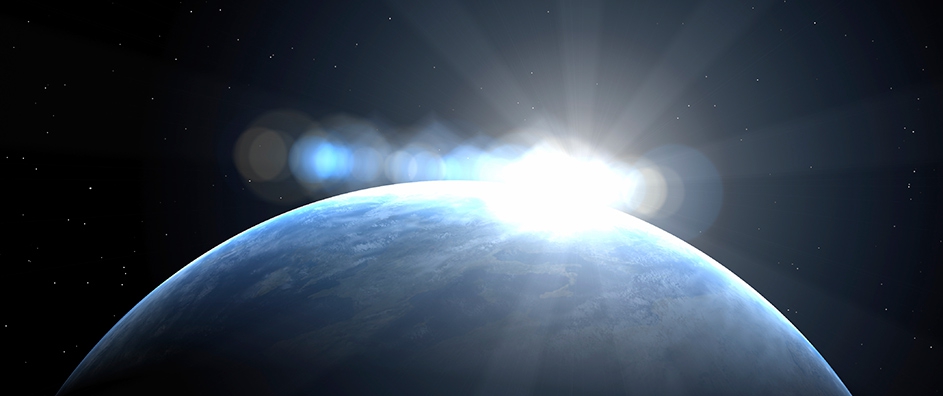

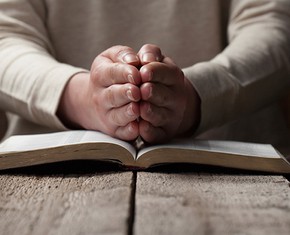
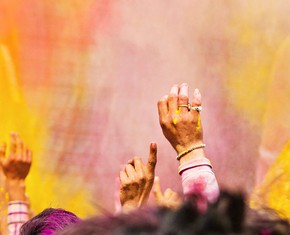
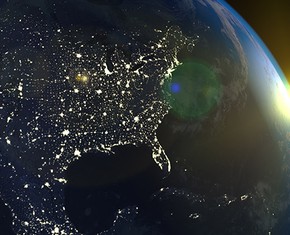









If you count yourself amongst those who don't want to dig too deeply, I appreciate your honesty, but I'm affraid my next question will then be irrelevant to you.
If you consider yourself to be somebody who is willing to look closely into what is happening no matter how much work it may take to piece the puzzle together again and again, I'd like to ask you how do you manage to not point out the sometimes hillarious deceptions but instead point to a more glorious future further down the path. Is there a threshold for you where you say: "no, I can't simply pass over that, I have to raise awareness about this issue!"? If yes, what line do you draw? Or have you come to the conclusion that even if you found out some inconvenient truth for yourself it is better to let others be deceived for the sake of their peace of mind? If yes, with what arguments would you support such a conclusion?
Looking forward to your answer...
For one thing, population biologists estimate that the Earth could permanently support perhaps two, maybe three, billion people. Currently, the Earth's human population stands at over 7 billion and is supposedly headed toward 9 billion --- a trend which, combined with rising per capita demand ...for goods and services and a global economy based on capitalist distribution and production patterns, and on non-renewable, carbon-based, climate-disrupting energy, guarantees major regional collapses of agricultural, ecological, social, economic, and political systems. Computer models of the global system consistently, for over 40 years, have been telling the world that this will happen by 2030 unless radical changes of policy take place.
For a second thing, it is clear that humanity's basic pattern of self-government, based as it is on alpha-male political and economic power competition, is incapable of adequately rising to the crises that humanity itself has precipitated and to make these changes of policy..
For a third thing, it is clear that religions have a tendency to make people think in terms of magical and supernaturalist interventions, rather than mobilizing people to take control of the situation where governments and economic elites have failed.
The clear implication of all the scientific facts and tendencies is that humanity will plunge into deep disaster in the next 15 to 20 years.
The real question is what has been, is, and will be the message and behavior of the Baha'i community in this total global situation. Pope Francis has given the world a new encyclical on integral ecology. I suggest we study it and join with those who are working to implement it.
I often make comparisons with nature. The harsh storm might seem to be dsetroying things but it gets rid of the rotten branches, washes the waste from the streams and rivers. It is then followed by an abundant spring and summer.
Why be focussed ...on the winters destruction and be sad when you can focus on the summers blessing hastened in by the harsh winter.
Society is corrupt and decaying on every level and this collapse will hasten in a better World. Future generations will enjoy the benefits.
I try not to waste time following all the problems but instead focus my time and energy on solutions.
Abdu'l-Bahá and Shoghi Effendi didn't just leave the Covenant-breakers to do their thing (i.e. because Bahá'u'lláh had anyway promised that "this is the day that shall not be followed by night"), but they protected the community from that pernicious influence since left unchecked they would "utterly destroy the Cause of God, exterminate His Law and render of no account all efforts exerted in the past."
Mirza Muhammad-Ali (yes this turned-out-to-be-master-schemer) comes 2nd in the Kitáb-i-Ahd after Abdu'l-Baha and he would have been Abdu'l-Bahás successor if he wouldn't have spoiled it for himself and mankind. Instead he went down an alternative path of "Should he for a moment pass out from under the shadow of the Cause, he surely shall be brought to naught." Difficult to imagine how much potential brightness of the future has been lost by that choice, but the thought doesn't look far fatched to me that if he wouldn't have turned all of Abdu'l-Bahás family against the Guardian, we would probably have a living Guardian today.
Bahá'u'lláh offered Napoleon III (yes this turned-out-to-be-overbearing-drunkard) "He, verily, will assist thee with the hosts of the seen and unseen, and will set thee king over all that whereon the sun riseth." - Now, this didn't happen, because Napoleon III spoilt it for himself and for mankind and went down an alternative path of "For what thou hast done, thy kingdom shall be thrown into confusion, and thine empire shall pass from thine hands, as a punishment for that which thou hast wrought." Again, difficult to imagine how much potential brightness of the future has been lost by that choice, but we can probably say that neither the 1st nor the 2nd world war would have taken place, let alone all the wars that followed, because it was only AFTER Napoleon's miserable choice that Bahá'u'lláh wrote to the kings and rulers in general: "Now that ye have refused the Most Great Peace, hold ye fast unto this, the Lesser Peace, that haply ye may in some degree better your own condition and that of your dependents." - Doesn't sound to me like His 1st choice for mankind.
I think those two examples illustrate the pattern very well. There are wills and powers in the world which do not look past the rim of their tea-cup and there are others, which consciously intend to lead mankind down a dark path. I think we should know about that, make a good effort to protect ourselves and others from their unwholesome influence and not simply stand back and watch the world being turned into a toy within irresponsible hands.